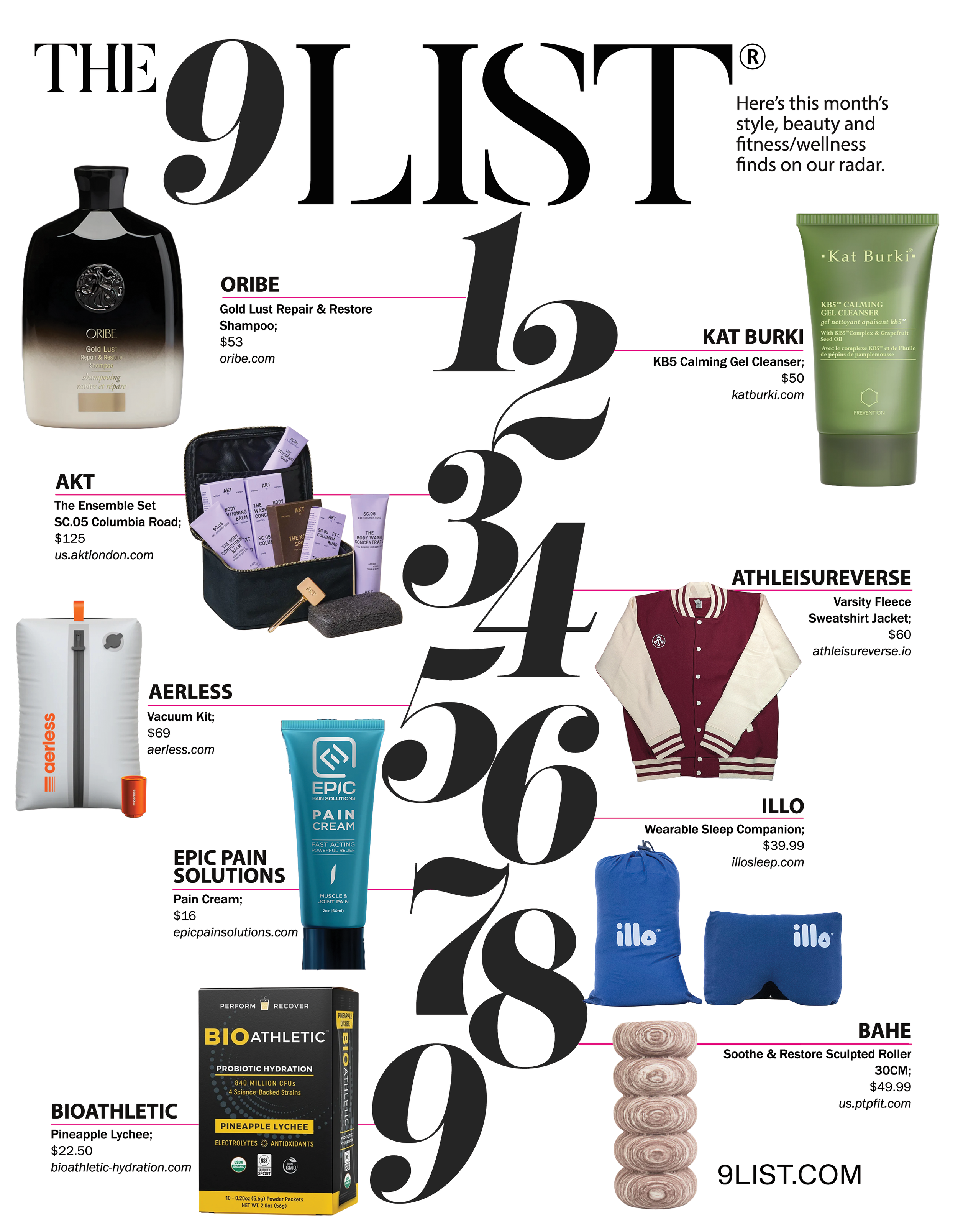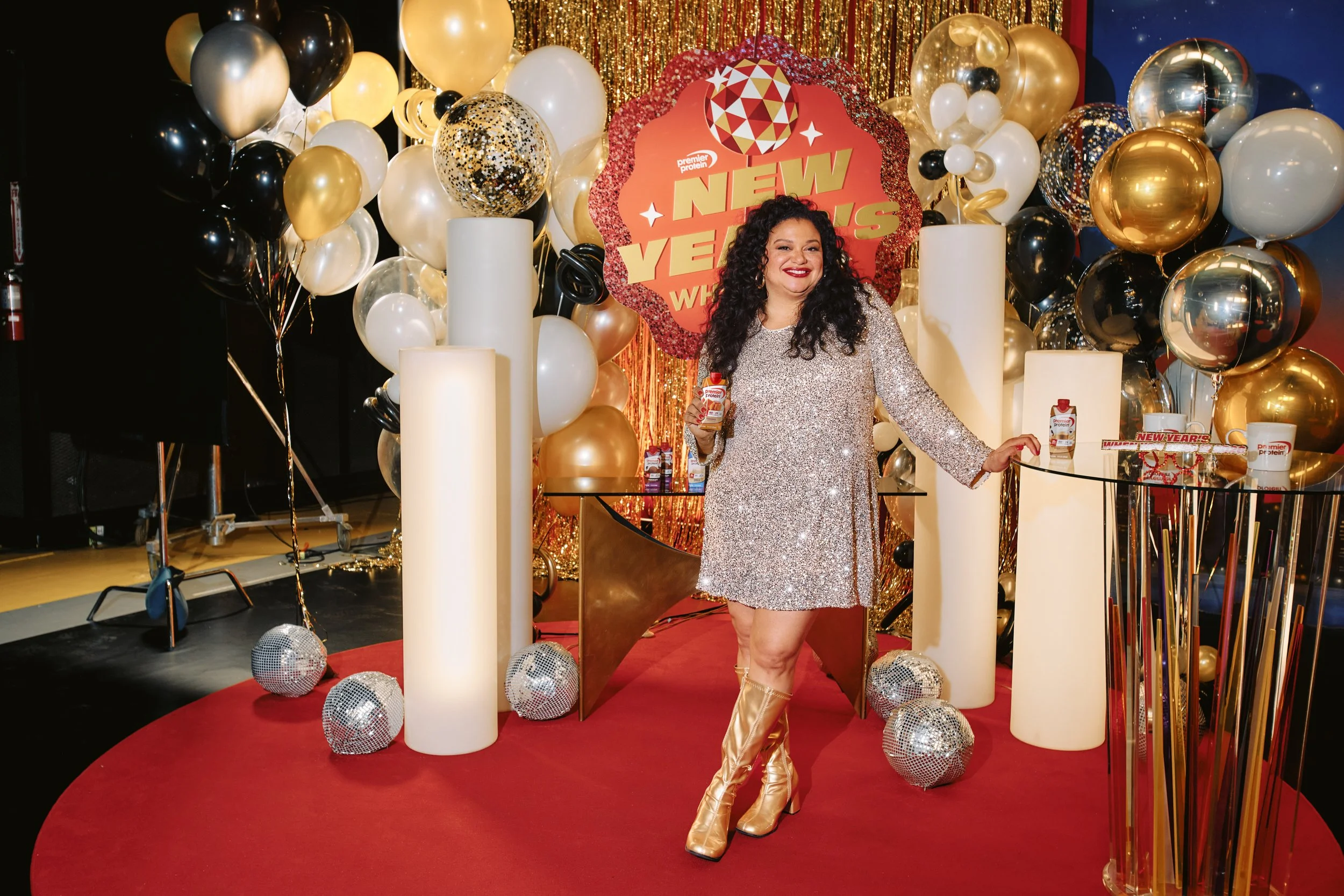We are living in the midst of times that we couldn't create out of the most vivid of our imaginations! With so much uncertainty, we checked in with Heather Centurioni of CODE RED to talk about how being an athlete has fueled her career, how to motivate others to make good choices as they sustain their fitness goals as well as their mental health. She shares insightful tips that are worth noting as we continue to navigate our new reality.
ATHLEISURE MAG: You grew up as a junior elite level athlete in downhill skiing and suffered a horrific downhill ski race accident - how did that shape your focus in living a healthy lifestyle?
HEATHER CENTURIONI: As a young athlete, I could eat whatever I wanted. I could get away with a lot. We were taught to carb-load, etc. I don’t think I ever realized the power of food until I became overweight and nothing was working. I wanted to be healthy, but I had no idea where to start. I knew I was addicted to sugar and carbs. I knew I didn’t need another diet. I needed to learn how to eat. How to fuel my body. How to take care of myself. I also wanted to feel good again, like I did as a young athlete.
AM: When did you realize that you wanted to work in the wellness industry and become a health and wellness coach?
HC: I always have felt the pull to help people. I knew it was my calling, but I struggled for years to figure out what that meant and what it looked like. I am a mother hen at heart. I am at my best when I am lifting others up.
When I began my wellness journey in June 2017, I saw that I was going to get healthy and when I could lift others up who was on the same path, it felt really good! I saw how a high vibe tribe can guarantee success.
AM: How important is accountability in your wellness journey whether you're looking to stay fit, lose weight or other goals that involve transforming your goals based on your desired need?
HC: Listen, if we all could do it alone, we would have already done it, right? I was an elite ski racer, it was me and the clock on the course. I played tennis and golf. I tend to lean towards individual things. “I can do it on my own” type things. In high school and college, I loathed group projects. I prefer things my way. That type A, self-centered trait was not serving me well in my desire to get healthy. I was failing at every corner. I was ashamed. I managed to pack on over 200 pounds, which was far too much for my 5’3” frame. My prosthetics didn’t fit. I was a fat amputee and it was depressing. Having an accountability group was integral to my success. It required me to open up, to be honest, and to be vulnerable. Sharing your good days, right along with your bad days is as important as seeing others do the same. I came to Code Red feeling very isolated. I was depressed. I assumed I was the only one. Being part of a group that understood my feelings really made a difference.
AM: Tell us about CODE RED and why you decided to use their program when you were looking to lose weight?
HC: I was drawn to Code Red for several reasons. It was simple. I wasn’t going to have to exercise (for an overweight amputee, this was key!). My prosthetics were so ill-fitting, just walking around the house was painful. I started with an entry-level challenge. I had nothing to lose. I was deflated, depressed and quite possibly the lowest spot in all my years. The easy rules, support and no-nonsense approach drew me in. I also knew that the program had a maintenance plan. I knew I could get the weight off, but I had never found a program that taught you how to maintain. Funny enough, the end and the far future were most important to me and I knew in my heart that Code Red would give me the tools to stay healthy long term. I also didn’t have to buy crappy shakes, expensive supplements or prescription drugs. I was told to drink water, eat from a healthy food list and sleep! It’s truly that simple.
AM: Because of your success, you became a Certified Coach with CODE RED, why did you decide to work with them?
HC: I believed in the owner, Cristy Nickel and I think she saw my servant's heart and picked up on my keen ability to understand people. I learned a lot after my ski racing accident and in the years that followed. Deciding to have your leg amputated as an 18-year-old, learning to walk again, finishing high school, living in constant pain, I learned a ton about myself and the power of the human spirit. I knew how to overcome.
I knew Cristy’s no-nonsense, simple approach worked and she taught me well, so I was grateful for the opportunity to learn from her and to work alongside her. I also knew, this was it…my calling! I finally found it! The opportunity to help people lose weight, get them healthy and watch their lives change for the better, to them overcome, it has been a dream come true.
AM: What is the CODE RED Lifestyle model?
HC: Code Red is a rallying cry for every person who is fed up with the information overload, complicated diets, and extreme exercise programs. We focus on water, sleep and real food.
AM: We're living in strange times as we are staying at home to flatten the curve, our routines have definitely been altered and anxiety has become a result of these changes - how can we manage this?
HC: Good gracious, it has been hard, right? I think there are several things that can help folks:
* Be grateful and find Grace in the tough moments and the good ones.
* Stay on track with life via a list and a plan.
* Take a time out each day to just be. Being present when you are feeling anxious really helps.
* If you are fortunate enough to have the gift of extra time, use it wisely. Spend it with your family, learn something new, embrace it. When will we ever have extra time again?
AM: For those that are focusing on losing weight during COVID-19 quarantine, what tips do you suggest?
HC: * Drink water!
* Sleep at least 7 hours!
* Ditch the sugar!
* Plan, prep and schedule meal times. Don’t leave your kitchen open all day. Having kitchen hours keeps you from grazing all day and mindless eating.
* If you find yourself turning to food and drinks to soothe your soul, make a list of 12 things you can do instead of over indulging. Maybe you have some chores to tend too, maybe you have a craft to finish, maybe you want to learn something new. DO IT!
AM: Many have found issues in terms of ordering the food that they need whether there are shortages in their grocery stores, delays in deliveries that are coming to them, etc. How can they reduce their anxieties on not being able to control these issues while also staying on their plan?
HC: Keep things simple. Eating well isn’t complicated. You don’t have to be a kitchen whiz to make good food and you don’t have to spend a fortune either. Less is more. Look for vegetables (fresh, frozen, even canned), fats and proteins. Avoid the inner aisles of the grocery stores.
AM: From a mental wellness standpoint, what are some tips that you have for those that are looking to reduce the noise of everything that we've all gone through from updates on COVID, anxiety over when there will be concrete information about re-openings and going back to our routines etc?
HC: I talk a lot about the background noise in our lives with my clients. It comes at us from all directions. Currently, it is everywhere, all the time. No two reports are the same, it’s hard to have faith in anything. I encourage people to cleanup their newsfeeds, if watching the nightly news is depressing, STOP watching! Find something else to do with your time. Don’t buy into all the hysteria. If you can eat real food, ditch the sugar, drink water and get a good night’s rest, you will feel so much better. How you fuel your body will help you with deal with the uncertainty. I know that sounds strange, but you will have less brain fog and less anxiety. The healthier you are, the less likely you are to get sick. Taking care of yourself now, will keep you healthier no matter the situation.
PHOTO COURTESY | Heather Centurioni
Read the May Issue of Athleisure Mag and see Managing the Anxiety with Heather Centurioni in mag.

















